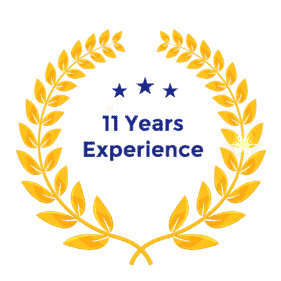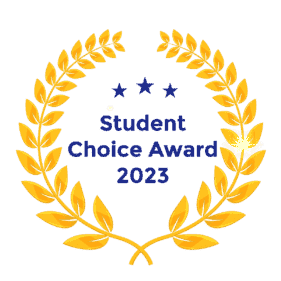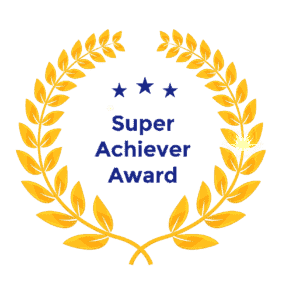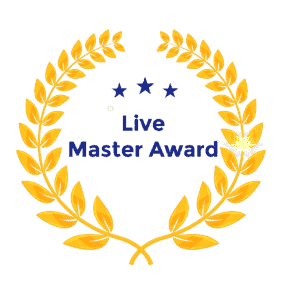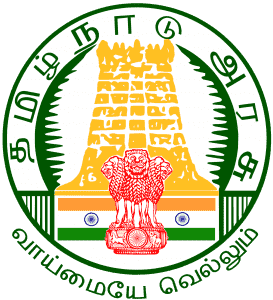 We Shine Academy, the best TNPSC Coaching Centre in Chennai for all Group exams is very glad to announce the aspirants that We Shine Academy is providing exclusive coaching for TNPSC Group Exams with highly-skilled, efficient and experienced faculties.
We Shine Academy, the best TNPSC Coaching Centre in Chennai for all Group exams is very glad to announce the aspirants that We Shine Academy is providing exclusive coaching for TNPSC Group Exams with highly-skilled, efficient and experienced faculties.
It’s a well-known fact that We Shine Academy is the best training institute for TNPSC all sort of exams conducted by the TNPSC not only in Chennai all over the state with proven records and the students of We Shine Academy are directly working under government of Tamil Nadu on the respective departments. For more details
Tamil Nadu Public Service Commission
TNPSC is responsible for recruiting personals to the civil services in Tamil Nadu.TNPSC deals on all matters relating to methods of recruitment to Civil Services and for civil posts and also on the principles to be followed in making appointments to Civil services and posts and in making promotions and transfer.TNPSC job notifications are common and usually rolled out by TNPSC every year to recruit the civil servants to work under Government of Tamil Nadu directly.
On this page
We Shine Academy Specialized in following TNPSC Group Exams
- TNPSC Group I
- TNPSC Group II (Interview)
- TNPSC Group II A(Non Interview)
- TNPSC Group III
- TNPSC Group IV
- TNPSC VAO
- TNPSC Assistant Jailor
- TNPSC Librarian
- TNPSC Draughtsman
- TNPSC Assistant Geologist
How to approach We Shine Academy?
The easiest way to approach We Shine Academy, is by just giving a missed call to 8939 144 344 , 8939 244 344 or drop in to We Shine office which is located in Chrompet, Anna Nagar, T Nagar for joining related enquiries, demo class and other doubts.Or else kindly log on to the Social Networking Sites face book, twitter, google plus. Check out the daily Current Affairs which is again open to each and every Government exam aspirants.
Get Regular updates on Recent Notifications, Daily TNPSC Current Affairs, frequently asked Questions in our Whatsapp Group in which subject wise doubts and Queries could be clarified in Image or video format.
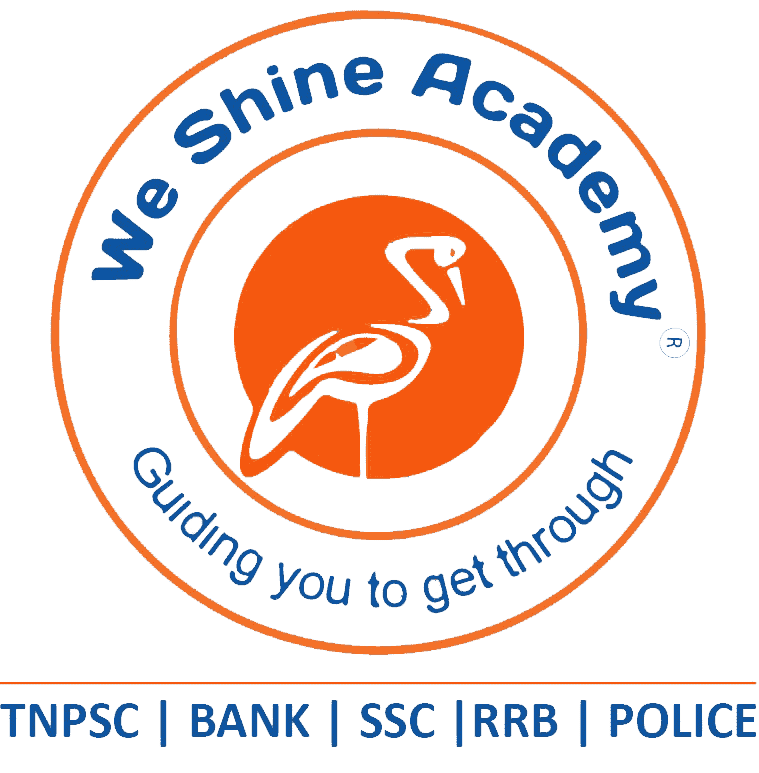
We Provide Students for Unique App Features for Self Evaluation and Self Analysis.
Download
Android App & IOS App
Group I
Services (Posting)
- Deputy Collector.
- Deputy Superintendent of Police (Category-I).
- Deputy Registrar of Co-operative Societies.
- Assistant Director of Rural Development Department.
- Assistant Commissioner in the Tamil Nadu Hindu Religious and Charitable Endowments Administration Department.
- Assistant Commissioner – Commercial Tax officer.
- District Registrar.
- Divisional Officer in Fire and Rescue services Department.
- Assistant Conservator of Forest.
- District Employment Officer.
Application Mode
- Online mode – through www.tnpscexams.net website.
Qualification
- Any Degree / final year student also apply posting.
Selection Process
- Preliminary Examination.
- Main Written Examination.
- Interview.
Age Limit
Minimum Age
- 21 years
Maximum Age
- BC/MBC/SC/ST – 35 Years
- Others -30 Years
BL Degree
-
- BC/MBC/SC/ST – 36 Years
- Others -31 Years
Pattern
Preliminary Exam
- 200 Questions(Objective Type – 3 hours) -> 300 Marks
- General Studies – 150
- Aptitude & mental ability – 50
Main ExamMain Exam
- Paper I – > 300 mark (3 hours – descriptive type)
- Paper II – > 300 mark (3 hours – descriptive type)
- Paper III – > 300 mark (3 hours – descriptive type)
Interview
- 120 mark
Syllabus
Group I – Preliminary Exam
General Studies
UNIT – I : General Studies
Physics
Universe – 300 mark (3 hours – descriptive type)ns and discoveries-National scientific laboratories-Science glossary-Mechanics and properties uf maller-Physical quantities, standards and units-Force, motion and energy- electricity and Magnetism – electronics & communications – Heat, light and sound-Atomic aml nuclear physics-Solid State Physics-Spectroscopy – Geophysics – Astronomy and space science .
Chemistry
Elements and Compounds-Acids, bases and salts – Oxidation and reduction – Chemistry of o res and metals -Carbon, nitrogen and their compounds-Fertilizers, pesticides, insecticides-Biochemistry and biotechnulugy-Electrochemistry-Polymers and plastics
Botany
Main Concepts of life science-The cell-basic unit uf life-Classification of living organism-Nutrition anrl dietetics-Respiration-Excretion of metabolic waste-Biocommunication
Zoology
Blood and blood circulation-Endocrine system-Re productivity system-Genetics the science of heredity-Environment, ecology, health and hygiene, Bio- diversity and its conservation-Human diseases, prevention and remedies-Communicable diseases and nun- communicable diseases-Alcoholism and drug abuse-Animals, plants and human life
UNIT – II : Current Events
History
Latest diary of events – National – National symbols -Profile of States-Defence. national security and terrorism-World organizations-pacts and summits-Eminent persons & places in news-Sports & games-Books & authors -Awards & honours-Cultural panorama-Latest historical events- India and its neighbours- Latest terminulugy Appoin tments-who is who?
Politcal Science
India’s foreign policy – Latest court verdicts – public opinion – Problems in conduct of public elections- Political parties and political system in India Public awareness & General administration- Role of Volunta1y organizations & Govt,- Welfare oriented govt. sc:hemes, the ir utility
Geography
Geographical landmarks-Policy on environment and ecology
Economics
Current socio-economic problems-New economic policy & govt. sector
Science
Lalest inventions on science & technology – Latest discoveries in Health Science – Mass media & communication
UNlT – III : Geography
Earth and Universe – Solar system – Atmosphere hydrosphere, lithosphere -Monsoon, rainfall, weather and climate – Water resources – rivers in India – Soil, minerals & natural resources-Natural vegetation-Forest & wildlife-Agricultural pattern, livestock & fisheries-Transport & communication-Social geography – population-density and distribution-Natural calamities – disaster management-Climate change – impact and consequences – mitigation measures-Pollution Control
UNIT – IV : History and culture of India
Pre-historic events -Indus valley civilization-Verdict, Aryan and Sangam age-Maurya dynasty-Buddhism and Jainism Guplas, Delhi Sultans, Mughals and Marathas-Agc of Vijayanagaram and the bahmanis South Indian history-Culture and Heritage of Tamil people-Advent of European invasion-Expansion and consolidation of British rule-Effect of British rule on socioeconomic factors-Social reforms and religious movements-India since independence – Characteristics of Indian culture-Unity in diversity – race, color, language, custom India-as secular state-Organizations for fine arts. dance, drama, music-Growth of rationalist, Dravidian movement in TN-Political parties and populist schemes – Prominent personalities in the various spheres – Arts, Science, literature and Philosophy Mother Teresa, Swami Vivekananda, Pandit Ravishankar M.S.Subbulakshmi, Rukmani Arundel and J.Krishnamoorthy etc
UNIT – V : INDIAN POLITY
Constitution of lndia – Preamble to the constitution – Salient features of constitution – Union, State and territory – Citizenship-rights amend duties – Fundamental rights – Fundamental duties – Human rights charter – Union legislature – Parliarnent – State executive – State Legislature – assembly – Status of Jammu &. Kashmir – Local government – panchayat raj – Tamil Nadu – Judiciary in India – Rule of law/Due process of law – Indian federalism – center – state relations – Emergency provisions – Civil services in lndia – Administralive challenges in a welfare state – Complexities of district administration – Elections – Election Comrnission Union and State – Official language and Schedule-VII – Amendments to constitulion – Schedules to constitution – Administrative reforms & tribunals- Corruption in public life – Anticorruption measures – Central Vigilance Commission, lok-adalats, Ombudsman, comptroller and Auditor General of India. – Right to information – Central and State Commission – Empowerment of women- Voluntary organizations and public grievances redressal – Consumer protection forms
UNIT – VI : INDIAN ECONOMY
Nature of Indian economy – Five-year plan modelsan assessment – Land reforms & agriculture – Application of science in agriculture – Industrial growth – Capital formation and investment-Role of public sector & disinvestment-Development of infrastructure- National income – Public finance & fiscal policy – Price policy & public distribution- Banking, money & monetary policy – Role of Foreign Direct Investment (FD!) – WTO-globalization & privatization – Rural welfare oriented programmes – Social sector problems – population, educ;:ition, health, employment, poverty – HRD – sustainable economic growth- Economic trends in Tamil Nadu – Energy Different sources and development – Finance Commission – Planning Commission – National development Council
UNIT – VII : INDIAN NATIONAL MOVEMENT
National renaissance- Early uprising against British rule-1857 Revolt- Indian National Congress – Emergence of national leaders- Gandhi, Nehru, Tagore, Netaji -Growth of militant movements -Different modes of agitations-Era uf different Acts & Pacts-World war & final phase struggle – Communalism led to partition- Role of Tamil Nadu in freedom struggle – Rajaji, VOC, Periyar, Bharathiar & Others – Birth of political parties / political system in India since independence
Aptitude & mental ability
Conversion of information to data Collection, compilation and presentation of data – Tables, graphs, diagrams – Parametric representation of data-Analytical interpretation of data -Simplification- Percentage-Highest Common Factor (HCF)-Lowest Common Mulliple (LCM)-Ratio and Proportion-Simple interest-Compound interest-Area-Volume-Time and Work- Behavioral ability – Basic terms. Communications in informabon technology – Application of Information and communication Technology (ICT) – Decision making and problem solving
Logical Reasoning
Puzzles – Dice – Visual Reasoning- Alpha numeric Reasoning – Number Series – Logic Number/ Alphabetical/Diagrammatic Sequences
Group I – Main Written Examination
PAPER – I – General studies (Degree Standard)
UNIT – I : Modern history of India and Indian culture
Advent of European invasion Expansion and consolidation of British rule – Effect of Briitish rule on socio-economic factors – Social reforms and religious movements – India since independence – Characteristics of lndian culture – Unity in diversity – race, colour, language, custom – India – a secular state – Organizations for fine arts, dance, drama, music – Growth of rationalist, Dravidian movement in Tamil Nadu – Political parties and populist schemes – National renaissance – Early uprising against British rule – 1857 Revolt – lndian National Congress – Emergence of national leaders – Gandhi, Nehru, Tagore, Netaji – Growth of militant movements -different modes of agitations – Era of different Acts & Pacts – World war & final phase struggle – Communalism led lo partition – Role of Tamil Nadu in freedom struggle – Raiaji, VOC, Periyar, Bharathiyar &. Others
Unit II : General Aptitude & Mental Ability
Conversion of information to data – Collection, compilation and presentation of data – Tables, graphs. diagrams – Parametric represendation of data -Analytical interpretation of data – Percentage – Highest Common Factor (IICF) – Lowest Common Multiple (LCM) – Ratio and Proportion – Simple interest – Compound interest – Area – Volume- Time and Work – Probability – lnformation technology- Basic terms. Communications – Application of Information and Communication Technology (ICT) – Decision making and problem solving – Basics in Computers/ Computer terminology.
UNIT – III : Role and impact of science and technology in the development of India and Tamil Nadu.
Nature or universe – General scientific laws – Scientific instruments – Inventions and discoveries – National scientific laboratories – Science glossary – Physical quantities, standards and units- Mechanics and properties uf matter – Force. motion and energy – heat, light and sound – Magnetism, electricity and electronics – Atomic and nuclear physics – Astronomy and space science – Elements and compounds – Acids, bases and salts – Oxidation and reduction – Carbon, nitrogen and their compounds – Natural disasters – safeguard measures – Chemistry of ores and metals – Fertilizers. pesticides, insecticides – Biochemistry and biotechnology – Polymers and plastics – Electrochemistry – Main concepts- of life science – The cell -basic unit oflife – Classification of living organism – Nutrition and dietetics – Respiration – Excretion of metabolic waste – Bio – communication – Blood and blood circulation – Endocrine system- Reproductivity system- Animals, plants and human life – Govt. policy /organizations on Science and Technology – Role, achievement & impact of Science and Technology – Energy – self sutl1ciency – oil exploration – Detence Research Organization – Ocean research and development – Genetics- the science of heredity- Environment. ecology, health and hygiene, Bio – diversity and its conservation – Human diseses. prevention ond remedies – Communicable dieases and non commicable dieases – Alchocolism Drug abuse – Computer science and advancement – Genetic Engineering – Remote sensing and benefits
PAPER – II General studies (Degree Standard)
UNIT -I : Indian polity and emerging political trends across the world affecting India and Geography of India
Indian polity – Constitution of India – Preamble tu the constitution – Salient features of constitution – Union state and territory – Citizenship – rights and duties – Fundamental rights – Directive principles of state policy fundamental duties – Human rights charter – Union executive – Union legislature – parliment – State executive – State legislature – assembly- Status ol Jammu and Kashmir – Local government – panchayat raj – Indian federalism – center state relations – Judiciary in lnd1a – Rule of law / Due process of law – Emergency provisions – Civil services in !ndia – Administrative Challenges in a welfare state – Complexities of district administration – Elections – Election Commission Union and State -Official language and Schedule – VII Amendments to constitution – Schedules to constitution
Emerging Political across the world affecting India :
Foreign Affairs with special emphasis on India’s relations with neighbouring countries and in the region -Security and defence related matters – Nuclear policy, issues and conflicts-The Indian Diaspora and its contribution to India and the world.
Geography of India :
Earth – Univerce – Solar system – Atmosphere. hytrosphere, lithosphere – Monsoon, rainfall – weather and climate – Water resources – rivers in India – Soil, minerals & natural resources – Natural vegetation – Forest & wildlife – Agriculture pattern, livestocks & fisheries – Transport including Surface Transport & communication – Social geography – population – density and distribution – Natural calamities – disaster management – 13ottom topography of indian ocean, Arabian Sea and Bay of Bengal – Climate change – impact and consequences – mitigation neasures – Pollution Control.
UNIT -I : Administrative of Union and States with special reference to Tamil Nadu
State government organization – structure, functions and control mechanism – District administration -role in people’s welfare oriented programs . Industrial map of Tamil Nadu – role of state government -Public Services – role of recruitment agencies – State finance – resources, budget and financial administration – Use of IT in administration- e-governance in the State -Natural calamities – Disaster Management. Union and State -strategic planning in the State – Social welfare – Government sponsored schemes with reference to Tamil Nadu – Union government Organization – structure, functions and control mechanism – Relationship between State and Union – Industrial map of India – role of Union government – Public Services – role of recruitment agencies in Union Government – Union finance – resources, budget and financial administration- list of IT in administration -e-governance in Union Government – Social welfare – government sponsored schemes by Government of India.
Paper – III – General Science
Current Events of national and International Importance
Latest diary of events – national / international symbols – Profile or states – Defence, national security andrl terrorism – Geographical landmarks World organizations – pacts and summits -Latest inventions on science & technology – Eminent personalities & places in new Sports & games – Books & authors – awards and honours – Cultural panorama – lalest historical event – Policy on environment and ecology – India and its neighbours – Natural disasters – safeguard measures – Latest terminalogy – Appoinments – who is who? – India’s foreign policy – Latest conrtrol verdicts – public opinion – Problems in conduct of public elections – Political parties and political system in India – Public awarenese -general adminitration- Role of voluntary organizations & govt. – Welfare oriented gvt. schemes their utlility – New economic policy & govt. sector – Mass media & communication
Current Economic Trends : Indian economy and Impact of globaleconomy of India
Indian Economy
Nature of Indian economy – Five – year plan models – an assessment – Land reforms & agriculture – Application of science in agriculture – Industrial growth – Capital formation and investmemt- Role of public sector & disinvestment – Development of infrastructure – National income – Public finance & fiscal policy – Price policy & public distribution – Consumerism & Consumer protection – Banking. money & monetary policy – Role of forerign Direct investment -HRD – Liberalisation globalization & Privatization – Rural welfare oriented programmes – WTO – sustainable economic growth – Economic trend in Tamil Nadu – Energy Different sources and development – Finance Commission – Planning Commission – National Development Council – Poverty Alleviation Programmes.
- lmpact of global economy on India : Impact of the Economic Crisis on India
(a) Offshoot of Globalized Economy –
(b) Aspects of Financial Turmoil in Indio – Capital Outflow – Impact on Stock and Forex Market – Impact of the Indian Banking System – lmpact on industrial Sector and Export Prospect – Impact of employment – Impact on Poverty
(c) Indian Economic Outlook.
India’s Crisis Responses and Challenges
(a) State of Economy in crisis Times
b) RBl’s Crisis Response
(c) Government’s Crisis Response
(d) The Risks and Challenges – Monetary policy – Fiscal Policy – Financial stability
The Options Ahead; Diversifying Exports
Boosting Domestic Consumption – Enhancing Public spending – Regenerating Employment- Provisioning credit to Productive Sectors- Need for Structural reforms- Increased purchasing power of the people.
Socio – Economic Issues in India / Tamil Nadu
Population Explosion – Unemployment issues in India & Tamil Nadu – child labour – Economic Issues (a) Poverty (b) Sanitation- Rural and Urban (c) Corruption in public life – Anti -Corruption measures – CVC, Lok-adalats, Ombudsman, CAC – Illiteracy – Women Empowerment- Role of the Government Women empowerment Social injustice to womenfolk. Domestic Violence -dowry menace, sexual assault – Loss of cultural heritage due to economic development – Urbanization and its impact on the society – Impact of violence on the growth of the nation. Religious violence,Terrorism and Communal violence – Regional Disparities – Problems of Minorities – Human Rights issues – Right to information – Central and State Commission – Faith and conflict among legislature, executive, judiciary and media. – Education – Linkage between Education and Economic Growth. – Community Development Programe – Employment Guarantee Scheme – Self Employment and Entrepreneurship Development – Role of N.G.O-s in Social Welfare – Government Policy on Health.
Physical Qualification
DSP post
Men Candidates
- Height : Not less than 165 cms
- Weight : 50 kgs
- Chest : Full inspiration 89 cm, full expiration 84cm, difference (Expansion) 5 cm
Women Candidates
- Height : Not less than 155 cms
- Weight : 50 kgs
Previous Year – Question Paper
| S. No | Exam Name | Link |
|---|---|---|
| 1 | Group I Exam | TNPSC Group I Exam – 2011 |
| 2 | Group I Exam | TNPSC Group I Exam – 2014 |
| 3 | Group I Exam | TNPSC Group I Exam – 2015 |
| 4 | Group I Exam | TNPSC Group I Exam – 2017 |
| 5 | Group I Exam | TNPSC Group I Exam – 2018 |
| 6 | Group I Exam | TNPSC Group I Exam – 2016 |
| 7 | Group I Exam | TNPSC Group I Exam – 2017 |
| 8 | Group I Exam | TNPSC Group I Exam – 2019 |
| 9 | Group I Exam | TNPSC Group I Exam – 2021 |
Mock Test – Question Paper
| S. No | Exam Name | Link |
|---|---|---|
| 1 | Mock Test 1 | Group I Exam Mock Test 1 |
| 2 | Mock Test 2 | Group I Exam Mock Test 2 |
| 3 | Mock Test 3 | Group I Exam Mock Test 3 |
| 4 | Mock Test 4 | Group I Exam Mock Test 4 |
| 5 | Mock Test 5 | Group I Exam Mock Test 5 |
| 6 | Mock Test 6 | Group I Exam Mock Test 6 |
Group II – Interview post
Services (Posting)
- Deputy Commercial Tax Officer (DCTO).
- Sub Registrar.
- Probation Officer in the Prison Department.
- Assistant Inspector of Labour.
- Junior Employment Officer.
- Assistant Section Officer in Law Department/ TNPSC/ Finance Department/Various Departments in the Tamil Nadu Ministerial Service/Secretariat Service.
- Assistant Inspector in Local Fund Audit Department.
- Special Assistant in the Vigilance and AntiCorruption Department.
- Audit Inspector in the Audit Wing of Hindu Religious and Charitable Endowments.
- Supervisor of Industrial Co-operatives.
- Senior Inspector of cooperative societies.
Application Mode
- Online mode – through www.tnpscexams.net website.
Mode of Exam
- Offline
Mode of Counselling
- Offline
Qualification
- Any Degree / final year student also apply posting.
Selection Process
- Preliminary Examination
- Main Written Examination
- Interview
Language of Exam
- English
- Tamil
Duration of Exam
- Prelims: 3 hours
- Mains: 1 hour 30 minutes (Paper I)+ 3 hours (Paper II)
Age Limit
- 18-32 years
Pattern
- Preliminary Examination : 300 Marks – 1 Hour 30 Mins
- Main Paper I : 300 Marks – 1 Hour 30 Mins
- Main Paper II : 300 Marks – 3 Hours 300
- Interview : 40 Marks
Syllabus
Group II – Preliminary Exam
General English- Grammar (Part A)
Phrases, Synonyms, Antonyms, Prefix & Suffix, Fill in the blanks, Prepositions, Tenses, Voice, Homophones, Error Detection, Comprehension, Odd one out, Word Formation, Identify the sentence, Compound words
General English- Literature (Part B)
Figure of Speech, Appreciation Questions from Poetry, Important Lines from Poem, Biography of Important persons, Shakespeare, Oscar Wilde, Dr Karl Paulnack, Comprehension Question from Motivational Essays, British English-American English, Comprehension Question from Description of Places
General English- Author & Literary Work (Part C)
Poem & Poets, Author & their stories, Biography & Auto Biography, Characters, Quotes, Important Lines of Indian Authors, Nationality of story, Drama, Folk Arts, About Poets, Dramatist, Famous Quotes, Various Works of Author, Period of the poets, Nature centred Literary works and global issue Environment & Conservation, Theme observed in Literary Work
General Science
Scientific Knowledge and Scientific temper – Power of Reasoning – Rote Learning Vs Conceptual Learning – Science as a tool to understand the past, present and future, Nature of Universe – General Scientific Laws – Mechanics – Properties of Matter, Force, Motion and Energy – Everyday application of the basic principles of Mechanics, Electricity and Magnetism, Light, Sound, Heat, Nuclear Physics, Laser, Electronics and Communications, Elements and Compounds, Acids, Bases, Salts, Petroleum Products, Fertilizers, Pesticides, Main concepts of Life Science, Classification of Living Organisms, Evolution, Genetics, Physiology, Nutrition, Health and Hygiene, Human diseases, Environment and Ecology
Current Events
History – Latest diary of events – National symbols – Profile of States – Eminent personalities and places in news – Sports – Books and authors, Polity – Political parties and political system in India – Public awareness and General administration – Welfare oriented Government schemes and their utility, Problems in Public Delivery Systems, Geography – Geographical landmarks, Economics – Current socio-economic issues, Science – Latest inventions in Science and Technology
Geography of India
Location – Physical features – Monsoon, rainfall, weather and climate – Water resources – Rivers in India – Soil, minerals and natural resources – Forest and wildlife – Agricultural pattern, Transport – Communication, Social geography – Population density and distribution – Racial, linguistic groups and major tribes, Natural calamity – Disaster Management – Environmental pollution: Reasons and preventive measures – Climate change – Green energy
History & Culture of India
Indus valley civilization – Guptas, Delhi Sultans, Mughals and Marathas – Age of Vijayanagaram and Bahmani Kingdoms – South Indian history, Change and Continuity in the Socio-Cultural History of India, Characteristics of Indian culture, Unity in diversity – Race, language, custom, India as a Secular State, Social Harmony
Indian Polity
Constitution of India – Preamble to the Constitution – Salient features of the Constitution – Union, State and Union Territory, Citizenship, Fundamental Rights, Fundamental duties, Directive Principles of State Policy, Union Executive, Union legislature – State Executive, State Legislature – Local governments, Panchayat Raj, Spirit of Federalism: Centre-State Relationships, Election – Judiciary in India – Rule of law, Corruption in public life – Anti-corruption measures – Lokpal and Lok Ayukta – Right to Information – Empowerment of women – Consumer protection forums, Human rights charter
Indian Economy
Nature of Indian Economy – Five year plan models – an assessment – Planning Commission and Niti Ayog, Sources of revenue – Reserve Bank of India – Fiscal Policy and Monetary Policy – Finance Commission – Resource sharing between Union and State Governments – Goods and Services Tax, Structure of Indian Economy and Employment Generation, Land reforms and Agriculture – Application of Science and Technology in agriculture – Industrial growth – Rural welfare oriented programmes – Social problems – Population, education, health, employment, poverty
Indian National Movement
National renaissance – Early uprising against British rule – Indian National Congress – Emergence of leaders – B.R.Ambedkar, Bhagat Singh, Bharathiar, V.O.Chidambaranar, Jawaharlal Nehru, Kamarajar, Mahatma Gandhi, Maulana Abul Kalam Azad, Thanthai Periyar, Rajaji, Subash Chandra Bose and others, Different modes of Agitation: Growth of Satyagraha and Militant movements, Communalism and partition
History, Culture, Heritage and Socio-Political Movements in Tamil Nadu
History of Tamil Society, related Archaeological discoveries, Tamil Literature from Sangam age till contemporary times
Thirukkural
- Significance as a Secular literature
- Relevance to Everyday Life
- Impact of Thirukkural on Humanity
- Thirukkural and Universal Values – Equality, Humanism, etc
- Relevance to Socio – Politico-Economic affairs
- Philosophical content in Thirukkural
Botany
Role of Tamil Nadu in freedom struggle – Early agitations against British Rule – Role of women in freedom struggle, Evolution of 19th and 20th Century Socio-Political movements in Tamil Nadu – Justice Party, Growth of Rationalism – Self Respect Movement, Dravidian movement and Principles underlying both these movements, Contributions of Thanthai Periyar and Perarignar Anna
Development Administration in Tamil Nadu
Human Development Indicators in Tamil Nadu and a comparative assessment across the Country – Impact of Social Reform movements in the Socio-Economic Development of Tamil Nadu, Political parties and Welfare schemes for various sections of people – Rationale behind Reservation Policy and access to Social Resources – Economic trends in Tamil Nadu – Role and impact of social welfare schemes in the Socio-Economic development of Tamil Nadu, Social Justice and Social Harmony as the Cornerstones of Socio-Economic development, Education and Health systems in Tamil Nadu, Geography of Tamil Nadu and its impact on Economic growth, Achievements of Tamil Nadu in various fields, e-governance in Tamil Nadu
Aptitude and Mental Ability
Simplification – Percentage – Highest Common Factor (HCF) – Lowest Common Multiple (LCM), Ratio and Proportion, Simple interest – Compound interest – Area – Volume – Time and Work, Logical Reasoning – Puzzles – Dice – Visual Reasoning – Alphanumeric Reasoning – Number Series
< h4>Group II – Main Exam
| Subjects | Max Marks | Remarks |
|
100 |
|
| TNPSC Gr 2 Mains Paper- II (Degree Standard) | ||
| General Studies (Descriptive type) |
300 |
|
Previous Year – Question Paper
| S. No | Exam Name | Link |
|---|---|---|
| 1 | Group II Exam | TNPSC Group II Exam – 2013 GE |
| 2 | Group II Exam | TNPSC Group II Exam – 2013 GK |
| 3 | Group II Exam | TNPSC Group II Exam – 2013 GT |
| 4 | Group II Exam | TNPSC Group II Exam – 2014 GK |
| 5 | Group II Exam | TNPSC Group II Exam – 2014 GT |
| 6 | Group II Exam | TNPSC Group II Exam – 2015 GE |
| 7 | Group II Exam | TNPSC Group II Exam – 2018 GS |
| 8 | Group II Exam | TNPSC Group II Exam – 2018 GT |
| 9 | Group II Exam | TNPSC Group II Exam – 2022 |
| 10 | Group II Exam | TNPSC Group II Exam – 2019 |
Mains : Previous Year Question Paper
| S. No | Exam Name | Link |
|---|---|---|
| 1 | Group II Exam | Group II Exam Mock Test 1 |
| 2 | Group II Exam | Group II Exam Mock Test 2 |
| 3 | Group II Exam | Group II Exam Mock Test 3 |
| 4 | Group II Exam | Group II Exam Mock Test 4 |
| 5 | Group II Exam | Group II Exam Mock Test 5 |
| 6 | Group II Exam | Group II Exam Mock Test 6 |
Group II A – Non Interview post
Services (Posting)
- Accountant in Treasuries and Accounts Department.
- Assistant in Forest Department.
- Personal clerk in Finance Department, Secretariat.
- Personal clerk in (other than Law and Finance Dept) Secretariat.
- Personal Clerk in Tamil Nadu Public Service Commission.
- Personal Clerk in Tamil Nadu Legislative Assembly.
- Assistant in various Departments in the Tamil Nadu Ministerial Service/Secretariat Service/Legislative Assembly Secretariat Service.
- Assistant in the Divisions of Commercial Taxes Department.
- Handloom Inspector.
- Revenue Assistant in Revenue Department.
Application Mode
- Online mode – through www.tnpscexams.net website.
Qualification
- Any Degree
Selection Process
- Preliminary Examination
- Main Written Examination
- Oral Test
Age Limit
- 18 – 60
Syllabus
Group II A – Preliminary Exam
Unit – I : General Science
- Scientific Knowledge and Scientific Temper – Power of Reasoning- Rote Learning vs Conceptual Learning – Science as a tool to understand the past, present and future.
- Nature of Universe – General Scientific Laws – Mechanics -Properties of Matter, Force, Motion and Energy – Everyday application of the Basic Principles of Mechanics, Electricity and Magnetism, Light, Sound, Heat, Nuclear Physics, Laser, Electronics and Communications.
- Elements and Compounds, Acids, Bases, Salts, Petroleum Products, Fertilisers, Pesticides.
- (Main concepts of Life Science, Classification of Living Organisms, Evolution, Genetics, Physiology, Nutrition, Health and Hygiene,Human Diseases.
- Environment and Ecology
Unit – II : Current Events
- History – Latest diary of events – National symbols – Profile of States – Eminent personalities and places in news – Sports – Books and authors.
- Polity – Political parties and political system in India – Public awareness and General administration – Welfare oriented Government schemes and their utility, Problems in Public Delivery Systems.
- Geography – Geographical landmarks.
- Economics – Current socio – economic issues.
- Science – Latest inventions in Science and Technology.
- Prominent Personalities in various spheres – Arts, Science, Literature and Philosophy.
Unit – III : Geography of India
- Location – Physical features – Monsoon, Rainfall, Weather and Climate – Water Resources – Rivers in India – Soil, Minerals and Natural Resources – Forest and Wildlife – Agricultural pattern.
- Transport – Communication.
- Social Geography – Population density and distribution – Racial, Linguistic Groups and Major Tribes.
- Natural calamity – Disaster Management – Environmental pollution : Reasons and preventive measures – Climate change – Green energy.
Unit – IV : History and Culture of India
- Indus Valley Civilization – Guptas, Delhi Sultans, Mughals and Marathas – Age of Vijayanagaram and Bahmani Kingdoms – South Indian History.
- Change and Continuity in the Socio-Cultural History of India.
- Characteristics of Indian Culture, Unity in Diversity – Race, Language, Custom.
- India as a Secular State, Social Harmony.
Unit -V : Indian Polity
- Constitution of India – Preamble to the Constitution – Salient features of the Constitution – Union, State and Union Territory.
- Citizenship, Fundamental Rights, Fundamental Duties, Directive Principles of State Policy.
- Union Executive, Union Legislature – State Executive, State Legislature – Local Governments, Panchayat Raj.
- Spirit of Federalism : Centre – State Relationships.
- Election – Judiciary in India – Rule of Law.
- Corruption in Public Life – Anti-corruption measures – Lokpal and Lok Ayukta – Right to Information – Empowerment of Women – Consumer Protection Forums, Human Rights Charter.
Unit -VI : Indian Economy
- Nature of Indian Economy – Five year plan models – an assessment – Planning Commission and Niti Ayog.
- Sources of revenue – Reserve Bank of India – Fiscal Policy and Monetary Policy – Finance Commission – Resource sharing between Union and State Governments – Goods and Services Tax.
- Structure of Indian Economy and Employment Generation, Land Reforms and Agriculture – Application of Science and Technology in Agriculture – Industrial growth – Rural Welfare Oriented Programmes – Social Problems – Population, Education, Health, Employment, Poverty.
Unit – VII : Indian National Movement
- National Renaissance – Early uprising against British rule – Indian National Congress – Emergence of leaders – B.R.Ambedkar, Bhagat Singh, Bharathiar, V.O.Chidambaranar Jawaharlal Nehru, Kamarajar, Mahatma Gandhi, Maulana Abul Kalam Azad, Thanthai Periyar, Rajaji, Subash Chandra Bose, Rabindranath Tagore and others.
- Different modes of Agitation : Growth of Satyagraha and Militant Movements.
- Communalism and Partition.
Unit – VIII : History, Culture, Heritage and Socio – Political Movements in Tamil Nadu
- History of Tamil Society, related Archaeological discoveries, Tamil Literature from Sangam Age till contemporary times.
- Role of Tamil Nadu in freedom struggle – Early agitations against British Rule – Role of women in freedom struggle.
- Evolution of 19th and 20th Century Socio-Political Movements in Tamil Nadu – Justice Party, Growth of Rationalism – Self Respect Movement, Dravidian Movement and Principles underlying both these Movements, Contributions of Thanthai Periyar and Perarignar Anna.
Thirukkural
- Significance as a Secular Literature
- Relevance to Everyday Life
- Impact of Thirukkural on Humanity
- Thirukkural and Universal Values – Equality, Humanism, etc
- Relevance to Socio – Politico – Economic affairs
- Philosophical content in Thirukkural
Unit – IX : Development Administration in Tamil Nadu
- Human Development Indicators in Tamil Nadu and a comparative assessment across the Country – Impact of Social Reform Movements in the Socio – Economic Development of Tamil Nadu.
- (ii) Political parties and Welfare schemes for various sections of people – Rationale behind Reservation Policy and access to Social Resources – Economic trends in Tamil Nadu – Role and impact of social welfare schemes in the Socio – Economic Development of Tamil Nadu.
- Social Justice and Social Harmony as the Cornerstones of SocioEconomic Development.
- Education and Health Systems in Tamil Nadu.
- Geography of Tamil Nadu and its impact on Economic growth.
- Achievements of Tamil Nadu in various fields.
- e-Governance in Tamil Nadu.
Unit – X : Aptitude and Mental Ability
- Simplification – Percentage – Highest Common Factor (HCF) – Lowest Common Multiple (LCM).
- Ratio and Proportion.
- Simple interest – Compound interest – Area – Volume – Time and Work.
- Logical Reasoning – Puzzles-Dice – Visual Reasoning – Alpha numeric Reasoning – Number Series.
Previous Year – Question Paper
| S. No | Exam Name | Link |
|---|---|---|
| 1 | Group II A Exam | TNPSC Group II A Exam – 2017 |
| 2 | Group II A Exam | TNPSC Group II A Exam – 2018 GK |
| 3 | Group II A Exam | TNPSC Group II A Exam – 2019 |
| 4 | Group II A Exam | TNPSC Group II A Exam – 2018 GT |
| 5 | Group II A Exam | TNPSC Group II A Exam – 2014 GT |
| 6 | Group II A Exam | TNPSC Group II A Exam – 2014 GE |
Mock Test – Question Paper
| S. No | Exam Name | Link |
|---|---|---|
| 1 | Mock Test 1 | Group II A Exam Mock Test 1 |
| 2 | Mock Test 2 | Group II A Exam Mock Test 2 |
| 3 | Mock Test 3 | Group II A Exam Mock Test 3 |
| 4 | Mock Test 4 | Group II A Exam Mock Test 4 |
| 5 | Mock Test 5 | Group II A Exam Mock Test 5 |
| 6 | Mock Test 6 | Group II A Exam Mock Test 6 |
Group IV
Services (Posting)
- Junior Assistant.
- Typist.
- Steno Typist − Grade III.
- EXECUTIVE OFFICER, GRADE-III in the Tamil Nadu Hindu Religious and Charitable Endowments Administration Department.
- Junior Assistant (Security).
- Bill Collector Grade-I.
- Junior Assistant (Non-Security).
Application Mode
- Online mode – through www.tnpscexams.net website.
Mode of Exam
- Offline
Mode of Counselling
- Offline
Qualification
- Minimum 10th std
Selection Process
- Written Test (Objective Type Exam)
- Document Verification (Certificate Verification)
Language of Exam
- English
- Tamil
Duration of Exam
- 3 hours
Age Limit
- 18-42 years
Syllabus
General science
- Nature of universe, measurement of physical quantities, general scientific laws in motion-force, pressure and energy, everyday application of the basic principles of mechanics, electricity, magnetism, light, sound
- Everyday application of the basic principles of heat and nuclear physics in our daily life
- Elements and compounds, acids, bases, salts, petroleum products, fertilizers, pesticides, metallurgy and food adulterants
- Main concepts of life science, classification of living organisms, evolution, genetics, physiology, nutrition, health and hygiene, human diseases
- Environmental science
Current events
- Latest diary of events, national symbols, profile of states, eminent personalities and places in news, sports, books and authors
- Welfare scheme of government, political parties and political system in Tamil Nadu and India
- Latest inventions in science and technology, geographical landmarks, current socio-economic issues
Geography
- Earth location, physical features, monsoon, rainfall, weather and climate, water resources, rivers, soil, minerals and natural resources, forest and wildlife, agriculture pattern
- Transport-communication
- Population density and distribution in Tamil Nadu and India
- Calamities, disaster management, environment, climate change
History and culture of India
- Indus Valley civilization-Guptas, Delhi Sultans, Mughals, and Marathas, South Indian history
- Characteristics of Indian culture, unity in diversity-race, language, custom
- India as a secular state
- General studies: Unit 05
Indian polity
- Constitution of India-preamble to the constitution, salient features of the constitution-union, state, and union territory
- Citizenship, fundamental rights, fundamental duties, directive principles of state policy
- Union executive, union legislature-state executive, state legislature-local governments, Panchayat Raj
- Spirit of federalism: Centre-state relationships
- Election, judiciary in India, rule of law
- Corruption in public life, anti-corruption measures, Lokpal and Lokayukta, right to information, empowerment of women, consumer protection forums, human rights charter
Indian economy
- Nature of Indian economy, five year plan models, an assessment, planning commission and Niti Aayog
- Sources of revenue, Reserve Bank of India, finance commission, resource sharing between union and state governments, goods and services tax
- Economic trends-employment generation, land reforms and agriculture, application of science and technology in agriculture, industrial growth, rural welfare oriented programmes, social problems, population, education, health, employment, poverty
Indian national movement
- National renaissance, early uprising against British rule, Indian National Congress, Emergence of leaders-B.R Ambedkar, Bhagat Singh, Bharathiar, V.O. Chidambaranar, Thanthai Periyar, Jawaharlal Nehru, Rabindranath Tagore, Kamarajar, Mahatma Gandhi
- Emergence of leaders: Maulana Abul Kalam Azad, Rajaji, Subhash Chandra Bose, Muthulakshmi Ammaiyar, Moovalur Ramamirtham and other national leaders
- Different modes of agitation of Tamil Nadu and movements
History, culture, heritage, and socio-political movements of Tamil Nadu
- History of tamil society, related archaeological discoveries, tamil literature from sangam age till contemporary times
- Thirukkural: (a) Significance as a secular literature. (b) Relevance to everyday life. (c) Impact of Thirukkural on humanity. (d) Thirukkural and universal values-equality, humanism, etc. (e) Relevance to socio-politico-economic affairs
- Thirukkural: (f) Philosophical content in Thirukkural
- Role of Tamil Nadu in freedom struggle, early agitations against against British rule, role of women in freedom struggle
- Various social reformers, social reform movements and social transformation of Tamil Nadu
Development Administration in Tamil Nadu
- Social justice and social harmony as the cornerstones of socio-economic development
- Education and health systems in Tamil Nadu
- Geography of Tamil Nadu and its impact on economic growth
Previous Year – Question Paper
| S. No | Exam Name | Link |
|---|---|---|
| 1 | Group IV Exam | TNPSC Group IV Exam – 2022 |
| 2 | Group IV Exam | TNPSC Group IV Exam – 2019 |
| 3 | Group IV Exam | TNPSC Group IV Exam – 2018 |
| 4 | Group IV Exam | TNPSC Group IV Exam – 2016 |
| 5 | Group IV Exam | TNPSC Group IV Exam – 2014 |
| 6 | Group IV Exam | TNPSC Group IV Exam – 2013 |
| 7 | Group IV Exam | TNPSC Group IV Exam – 2012 |
| 6 | Group IV Exam | TNPSC Group IV Exam – 2011 GT |
| 6 | Group IV Exam | TNPSC Group IV Exam – 2011 GS |
Mock Test – Question Paper
| S. No | Exam Name | Link | Answer |
| 1 | Mock Test 1 | Group IV Exam Mock Test 1 | Group IV Exam Mock Test 1 |
| 2 | Mock Test 2 | Group IV Exam Mock Test 2 | Group IV Exam Mock Test 1 |
| 3 | Mock Test 3 | Group IV Exam Mock Test 3 | Group IV Exam Mock Test 1 |
| 4 | Mock Test 4 | Group IV Exam Mock Test 4 | Group IV Exam Mock Test 1 |
| 5 | Mock Test 5 | Group IV Exam Mock Test 5 | Group IV Exam Mock Test 1 |
Why We Shine Academy the Best TNPSC Coaching Centres in Chennai?
We Shine’s answers are very simple perhaps highly powerful.
- Best coaching by the expertise in a regular class format.
- Bilingual Study materials available (English & Tamil)
- State of Art classrooms
- Class by Central & State Government Exams Cleared Officers
- Providing the best real-time test experience
- Special Test on Daily, Weekly, Monthly basis
- Similar questions that we use as of the commissions’ exam.
- Quick evaluation and self-analysis report for preparation strategy.
- Competency level of Questions papers
- Group Discussion to inculcate in-depth knowledge on Subject
- 136 Topic wise test + 55 Section-wise test + 46 Full-Length Exam
- 100% one to one care and observation
And can add a lot more points to the question Why We Shine Academy, is one of the best TNPSC Coaching Institute in Chennai.
We Shine Academy, mainly focus on the syllabi method of coaching for all competitive exams. Each and every topic will be given as a test to the all the We Shine Academy students and evaluation part will be done on the same day of the exam. Marks obtained by the we shine students will be compared with a couple of the previous tests that they took on the series and We Shine Academy’s growth graph will provide a clarity and clear idea to the students about their preparation strategy and level of competency on their individual Self Analysis Report which was handed over to them.
We Shine Academy one of the TNPSC coaching centre in Chennai, again and again, has proved it’s open mined thought by providing the asset of We Shine Academy not only to its own students instead to all the aspirants in state of Tamil Nadu who are preparing for the TNPSC Group exams. The asset we meant is our priceless TNPSC Model Question Paper that We Shine uploads in the website for the utilization all the students in open for all concept. WeShine Academy also circulates the previous year TNPSC Group I, II, IIA, IV, VAO and Technical exam questions papers for the benefit of TNPSC Group Exam aspirants for an idea and clear vision about the exam.
How to download – Questions papers
Here is the simple step that has to be followed by the students to download the Daily Weekly Monthly, Full Length and Mock Exam question papers and sets of previous year question papers. Kindly Log on to the We Shine Academy’s Website for correspondence.
Just click on the We Shine Students page, then you will be navigated to the We Shine Students page; there you will be having various useful and separate links to download the required daily Weekly Monthly, Full Length and Mock Exam question papers and sets of previous year question papers.
And also We Shine Academy, provides a separate and useful link to check the latest notification released by the respective commission.
TNPSC Exam Notifications
4Group IV Notifications
| S. No | Exam Name | |
| 1 | Group I Notifications | |
| 2 | Group II Notifications | |
| 3 | Group II A Notifications | |
| For Latest TNPSC Notifications | ||
Online TNPSC Coaching Centre
We Shine Academy also offers TNPSC Online Coaching Classes in Chennai. With this the aspirants living at any part of the state can get connected to us. Here you will be provided with the hardcopy of the study material and the softcopy will also be e-mailed accordingly. Each and Every Concepts will be handled by a well-trained and knowledged people. Online test will be conducted based on the topics along with which batch test, monthly preparation test will also be conducted. The buffering will be for 2 months. Apart from this Mock Test and Mock Interviews will be conducted. With this TNPSC online classes you will be offered with proper support desk to solve your queries. This will help to prepare in a very effective way.We also offer current affairs discussion classes, the document of the CA will be provided by in both Tamil and English.
Hurry Up!!!..
Study Materials for TNPSC are available at an affordable cost. Our Materials are the gist of SCERT Books and prepared by our experienced and well-placed candidates from various Government Exams.Materials are available in bilingual format.
For more details : +918939144344
Do you want to Buy Now :
 Click Here</span
Click Here</spanOther Training Locations
TNPSC Coaching Centre in Anna Nagar Chennai, TNPSC Coaching Centre in T Nagar, TNPSC Group 2 Coaching Centre in Chrompet

























